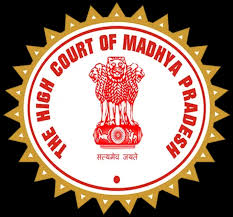K.P. Sivasubramaniam, J.@mdashIn the above writ petition filed by the management of the co- operative society, the petitioner prays for the issue of writ of certiorari to call for the records of the first respondent, dated December 16, 1994, and to quash the same.
2. The short facts which are sufficient for the disposal of the writ petition is that an employee by name K.G. Krishnah was dismissed from service by the petitioner-society. He had raised a dispute before the Labour Court and the Labour Court on coming to the conclusion that dismissal was without enquiry, directed reinstatement of the employee. Hence, the above writ petition.
3. The following facts are not in dispute:
The said Krishnan was accused of having misappropriated the funds of the society. An arbitration proceeding was initiated against him and the arbitrator by his award, dated March 13, 1985, held that the plaintiff society is entitled to receive a sum of Rs. 1,59,992.02 from the said Krishnan as a result of stock deficit of finished goods for which he was responsible. An appeal filed by the union on his behalf before the Co-operative Tribunal was also rejected. Therefore, the award against the said employee had become final.
4. Simultaneously criminal proceedings were also initiated before the Judicial First Class Magistrate, Coimbatore under Sections 408 and 477(a) I.P.C. The petitioner admitted his guilt and he was sentenced to pay a fine of Rs. 1,200 in default simple imprisonment for a period of three months.
5. As a result of the said conviction, the petitioner was not allowed by the respondent to continue in service and aggrieved by the same the petitioner raised the industrial dispute.
6. The Labour Court, directed reinstatement on the only ground that even though the employee was found guilty by the criminal Court, the management should have instituted a separate full- fledged enquiry. Inasmuch as no separate enquiry was instituted there was violation of principles of natural justice and the management was liable to reinstate the petitioner in service.
7. Learned counsel for the petitioner/ management contends that under Sub-section (2) of Section 162 of the Tamil Nadu Cooperative Societies Act, 1983, every person found guilty of any corrupt practice shall be punishable with imprisonment for a term which may extend to one year or with fine which may extend to five hundred rupees or with both. Under Sub-section (3) of Section 162, every person sentenced for an offence under Sub-section (2) shall be disqualified permanently to be an officer or an employee or paid servant of any registered society.
8. Strictly speaking the said provision may not be applicable considering that there was no specific prosecution u/s 162 and there was also no conviction specifically u/s 162(2) of the Act.
9. But there is a similar provision under Rule 149 of the Tamil Nadu Co-operative Societies Rules and Rule 149(4) which is as follows:
"No person shall be appointed to the service of any society, if he has been found guilty of any offence involving moral turpitude. An employee shall cease to be as such in a society, if he is found guilty of any such offence."
10. Therefore, on a reading of the above rule, it is imperative that the employee shall cease to be in the employment of the society if he is found guilty of any such offence.
11. I have also heard learned counsel for the respondents, Learned counsel for the respondents states that notwithstanding the punishment by the criminal Court there should have been a separate enquiry on the charges against the delinquent and in the absence of the same, the Labour Court was right in holding that the delinquent was entitled to reinstatement.
12. I am unable to sustain the contention of learned counsel for the respondent and also unable to uphold the reasons given by the Labour Court. Rule 149(4) of the Tamil Nadu Co-operative Societies Rules, 1988, came into force prior to the proceedings before the Labour Court. Even otherwise in the corresponding old Rules under Rule 149(5), the same provision is found. Therefore, in terms of the rules, the employee shall cease to function, the moment he is found guilty of any offence involving moral turpitude.
13. For the above reasons, I am inclined to hold that there is no necessity for the management to hold a separate enquiry. The order of the Labour Court, cannot be sustained. Disqualification would result automatically on conviction.
14. The writ petition is allowed. No costs. Connected miscellaneous petition is closed as unnecessary.

